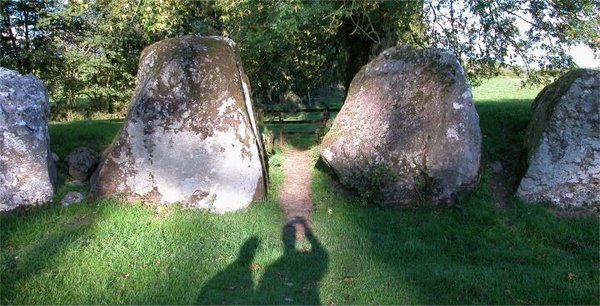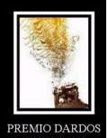"The love of learning,
the sequestered nooks,And all the sweet serenity of books."
-Henry Wadsworth Longfellow
3,386: the number of pages I hauled about with me on my first day in Cambridge this past week; the sum total of papers that I stored in my bag from earliest morning.
I boldly set out for the thrift stores just as soon as the doors were opened and the streets began to enliven a little.
Until late that same evening I carried 3,386 pages on my back like a triumphant snail proud of its burden. Truth be told, I felt no pain, no weight, just a brimming happiness that I had achieved what I set out to do: I had found nuggets of literary gold among the grimy bookshelves.
I suppose, on reflection, that I was much like the parents who I passed on the streets, the ones who carried small children in their arms: when something is so precious and sought-after, the physical weight is hardly noticed, and instead transcends to a warm glow of achievement and comfort.
Delighted at my excursion to the thrift stores, and aware all the day long of what I had found there, I was nonetheless continually astonished to note the volume of the books when I reached home and spilled each day's delving onto the carpet; by the close of the week it had surpassed twelve pounds.
What follows is an offering of the first lines from each individual book I found during the week.
*
The Dream Life of Sukhanov, by Olga Grushkin, 2005,
fiction'Stop here,' said Anatoly Pavlovich Sukhanov from the back seat, addressing the pair of suede gloves on the steering wheel. The white and yellow columns outside his window ceased their tiresome flashing, began to slow down, and in another moment fell obediently into their assigned places. A pale orange tentacle of a nearby street lamp pierced the plush darkness around him, and Nina, who had been silent the whole way, stirred as if waking.
Crime and Punishment, by Fyodor Dostoevsky, 1866,
fictionOn an exceptionally hot evening early in July a young man came out of the garret in which he lodged in S. Place and walked slowly, as though in hesitation, towards K. Bridge. He had successfully avoided meeting his landlady on the staircase.
Night Flight, by Antoine de Saint Exupery, 1942,
fictionAlready, beneath him, through the golden evening, the shadowed hills had dug their furrows and the plains grew luminous with long-enduring light.
At Large and at Small, by Anne Fadiman, 2007,
non-fictionThe net was green. The handle was wood, and the grip was uncomfortably thick, like that of a tennis racket borrowed from an older player. The mesh bag was long enough that if we caught a tiger swallowtail- or a spicebush swallowtail, or a mourning cloak, or a European cabbage, or a common sulphur, or a red admiral, or a painted lady, or a monarch, or a viceroy- we could, with a twist of the wrist, flip its tapered tip over the wire rim and trap the butterfly inside.
Laughing in the Hills, by Bill Barich, 1980,
non-fictionFor me it did not begin with the horses. They came later, after a phone call and a simple statement of fact:
your mother has cancer. Wordstruck, by Robert MacNeil, 1989,
non-fictionIt is a winter's night in 1936 in Halifax, Nova Scotia. A small boy is being read to. He is warm from a hot bath, wearing striped flannel pyjamas and a thick woolen dressing gown with a tasselled cord.
Waiting for Godot, by Samuel Beckett, 1948,
fictionEstragon, sitting on a low mound, is trying to take off his boot. He pulls at it with both hands, panting. He gives up, exhausted, rests, tries again. As before.
Enter Vladimir.
Last Chance to See, by Douglas Adams and Mark Carwardine, 1990,
non-fictionThis isn't at all what I expected. In 1985, by some sort of journalistic accident, I was sent to Madagascar with Mark Carwardine to look for an almost extinct form of lemur called the aye-aye. None of the three of us had met before. I had never met Mark, Mark had never met me, and no one, apparently, had seen an aye-aye in years.
The Ministry of Pain, by Dubravka Ugresic, 2005,
fictionI don't remember when I first noticed it. I'd be standing at a tram stop waiting for a tram, staring at the map of the city in the glass case, at the colour-coded buses and tram routes that I didn't understand and that were of little or no interest to me at the time, standing there without a thought in the world when suddenly, out of the blue, I'd be overcome by a desire to bash my head into the glass and do myself harm.
Awakenings, by Oliver Sacks, 1973,
non-fictionIn the winter of 1916-17, in Vienna and other cities, a 'new' illness suddenly appeared, and rapidly spread, over the next three years, to become world-wide in its distribution. Manifestations of the sleeping-sickness were so varied that n two patients ever presented exactly the same picture, and so strange as to call forth from physicians such diagnoses as epidemic delirium, epidemic schizophrenia, epidemic Parkinsonism, epidemic disseminated sclerosis, atypical rabies, atypical poliomyelitis, etc., etc.
Bury My Heart at Wounded Knee, by Dee Brown, 1970,
non-fictionIt began with Christopher Columbus, who gave the people the name
Indios. Those Europeans, the white men, spoke in different dialects, and some pronounced the word
Indien, or
Indianer, or
Indian.
Leave Me Alone, I'm Reading, by Margaret Corrigan, 2005,
non-fictionAmong the many dangers of being an obsessive reader is that you tend to mediate your life through books, filter your experiences through plots, so that the boundary between fiction and fact become porous.
Blue Highways, by William Least Heat Moon, 1982,
non-fictionBeware thoughts that come in the night. They aren't tuned properly; they come in askew, free of sense and restriction, deriving from the most remote of sources.
The Giving Tree, by Shel Silverstein, 1964,
fictionOnce there was a tree... and she loved a little boy.
Letters of E.B. White, 1976,
non-fictionIf an unhappy childhood is indispensable for a writer, I am ill-equipped: I missed out on all that and was neither deprived nor unloved. It would be inaccurate, however, to say that my childhood was untroubled.
















